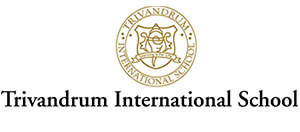Parenting styles play a crucial role in the development of a child’s personality, behaviour, and overall well-being. Among the various styles, authoritative parenting is often regarded as the most effective. It combines high expectations with warmth and responsiveness, creating a nurturing environment that fosters independence, responsibility, and self-discipline in children.
What is Authoritative Parenting?
Authoritative parenting is characterised by a balance of high expectations and support. Parents who adopt this style set clear rules and guidelines but also provide the reasoning behind these rules. They encourage open communication and allow children to express their opinions. This approach helps children understand the importance of rules and develop a sense of autonomy.
Key Features of Authoritative Parenting
- High Expectations: Authoritative parents set high but realistic expectations for their children’s behaviour and achievements.
- Nurturing and Supportive: They provide emotional support and show warmth and affection towards their children.
- Clear Communication: These parents communicate clearly and openly, explaining the reasons behind rules and decisions.
- Consistent Discipline: Authoritative parents enforce rules consistently but are flexible and willing to adjust them when necessary.
- Encouragement of Independence: They encourage children to think independently and make their own decisions within established guidelines.
Benefits of Authoritative Parenting
Authoritative parenting has numerous benefits for both children and parents. Here are some of the most significant advantages:
Development of Social Skills
Children raised by authoritative parents tend to have better social skills. They learn to communicate effectively, resolve conflicts, and develop strong interpersonal relationships. This is because they are used to engaging in discussions and expressing their views at home.
Academic Success
Research shows that children of authoritative parents often perform better academically. The combination of high expectations and support helps them develop a strong work ethic and motivation to succeed in their studies.
Emotional Well-being
Authoritative parenting promotes emotional stability and resilience in children. They are more likely to have high self-esteem and lower levels of anxiety and depression. The nurturing environment provided by authoritative parents helps children feel secure and valued.
Behavioural Regulation
Children raised with an authoritative approach are generally more self-disciplined and responsible. They understand the importance of rules and are less likely to engage in problematic behaviours. This is due to the consistent and fair discipline they experience.
Implementing Authoritative Parenting
Setting Clear Expectations
- Establish clear and consistent rules for behaviour.
- Explain the reasons behind each rule and the consequences of breaking them.
- Involve children in the rule-making process to give them a sense of ownership.
Providing Emotional Support
- Show empathy and understanding towards your child’s feelings.
- Offer praise and positive reinforcement for good behaviour and achievements.
- Be available and approachable for discussions and emotional support.
Encouraging Independence
- Allow children to make choices within a safe and structured environment.
- Encourage problem-solving and critical thinking by discussing different solutions and outcomes.
- Support your child in setting personal goals and working towards them.
Challenges of Authoritative Parenting
Despite its many benefits, authoritative parenting can be challenging to implement consistently. Some common challenges include:
- Balancing Firmness and Flexibility: Finding the right balance between enforcing rules and being flexible can be difficult.
- Time and Patience: Authoritative parenting requires time and patience to listen to children, explain rules, and provide support.
- Consistency: Maintaining consistency in rules and discipline while adapting to a child’s changing needs can be challenging.
Authoritative parenting is a balanced approach that combines high expectations with emotional support. It fosters independence, responsibility, and self-discipline in children, leading to better social skills, academic success, and emotional well-being. While it can be challenging to implement, the benefits it offers make it a worthwhile investment in a child’s future.



